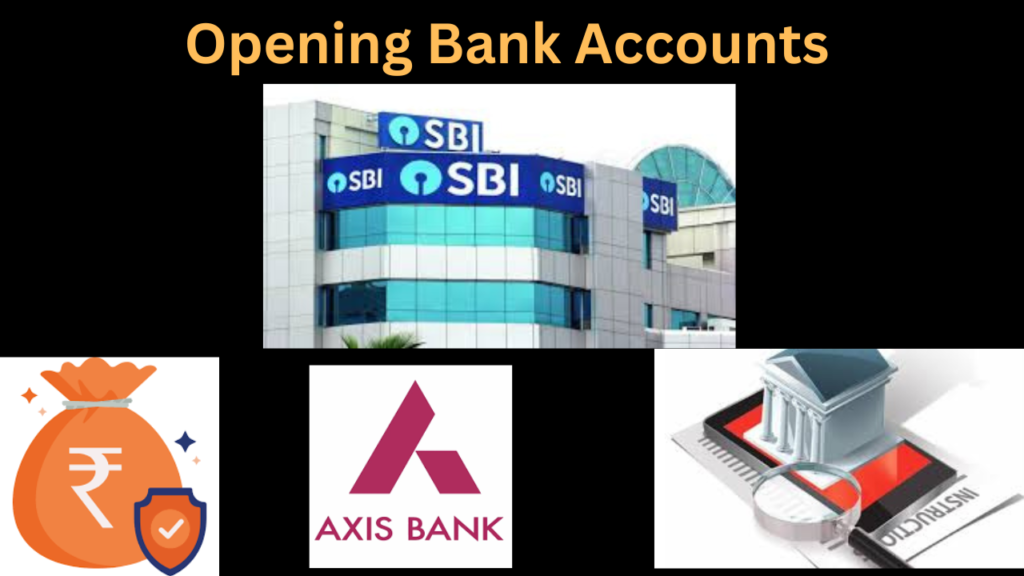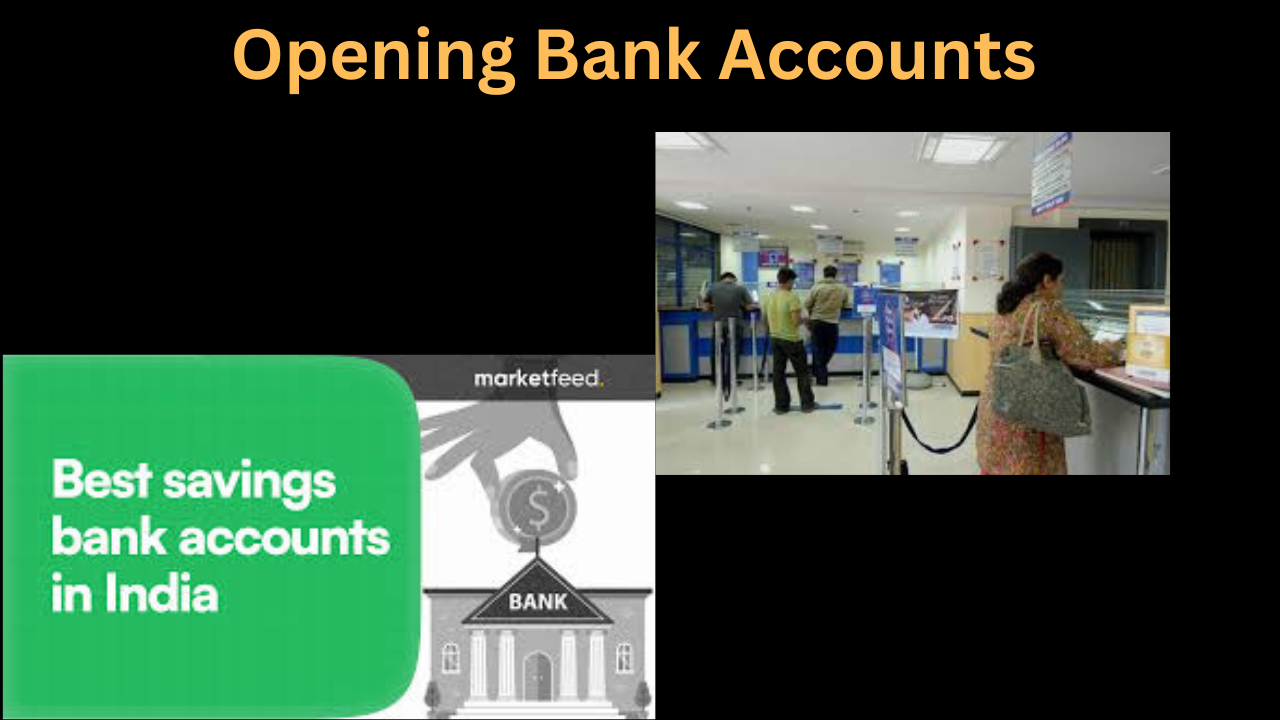bank account The first step towards being able to manage your money well is to open a bank account. Whether you want to control your spending, save money or make investments, having a bank account is very important. The tutorial will teach you the steps of opening a bank account, discuss different types of accounts available and give pointers on how to choose the best bank for you.
Table of Contents
bank account Necessity of a Bank Account

There are many reasons why having a bank account is good.
Safety: It’s safer to keep cash in banks than at home.
Convenience: You can access banking services through electronic means like transferring funds, paying bills and depositing and withdrawing money.
Interest: Some accounts accrue interest which help grow your finances over time.
Financial Management: These assist in keeping track of your savings and expenses on line using bank statements.
bank account Types of Bank Accounts
Before opening an account it is important to know about the different types available:
Current Account – This type can be used for everyday transactions such as shopping or bill payments
Features- usually come with internet banking, checkbook facilities and debit cards

Charges- some banks have options that do not include monthly maintenance fees, overdraft charges or ATM fees
Savings Accounts aim at accumulating savings while earning interest from them.
Features – higher interest rates compared to checking ones but limited monthly withdrawals
Fees- may have monthly maintenance fee frequently exempted when a minimum balance is maintained
Money Market Accounts Combining features of both saving and current accounts within this category.
Features- debit cards, cheque writing privileges at higher interest rates thereon
Fees- often come with extra charges as well as minimum balance requirements.
Certificate Deposit (CDs) – They offer fixed interest rate for specific period ranging from few months up to several years.
Features – locked till maturity but offer higher interests than standard savings accounts,
Fees- come with penalties for early withdrawal.
How to Apply for a Bank Account
Choose the Right Bank
Consider factors like:
Location: Go for a bank that has ATMs and branches near you.
Fees: Look at overdraft, ATM usage and account maintenance costs
Interest Rates: The CDs and savings accounts must have competitive interest rates.
Customer service: Check reviews or ask people who have used banks before to get an institution with good customer relations.
Online Banking: Check if the bank offers numerous mobile and online banking services
Gather the Necessary Documents
Most banks require the following information in order to open an account:
Identity – government issued documents like passport or driver’s license.
To prove your address, present utility bills, lease agreements among other such documents.
The Social Security Number (SSN) or Taxpayer Identification Number (TIN) for US citizens
First Deposit – some banks require that a minimum deposit be made when opening an account.
Apply at a Branch Near You or Online To open an account go to any local branch and talk to one of their representatives. Do not forget to carry your initial deposit as well as other necessary documentation needed.
Online: Many banks allow you to open an account on their websites. Fill out the application form, attach all supporting documents, and deposit your first payment electronically.
Deposit Money into your Account
To activate the account, the minimum balance must be deposited, this can be done by:
Cash Deposit: at an ATM or in a branch.
Check Deposit: via mail or at in-branch ATMs.
Electronically transferring: from another bank account.
Open a personal online banking account
Once you sign up for a new bank account online, make sure that you enroll in internet banking to help you manage your accounts more seamlessly while incorporating these;
Click “view statement” and access your account statements;
Transfer Funds: moving funds out of one’s money market accounts to another or among different financial institutions;
Paying Bills: scheduling reminders and setting up automatic payments for bills that are reoccurring;
Mobile Banking: go ahead and download the app so as to be able to access your bank even when on transit.
Advice on Taking Care of Your Bank Account
Keep an eye on your account, check transactions frequently to avoid overdrawing and catch any fraudulent activities early enough.
Configure Notifications – develop alerts about big transactions, low balances, or due bill dates.
Spend Your Money Wisely – take advantage of the budgeting tools offered by your financial institution to effectively manage finances.
Avoid Fees – use ATMs within the network only, maintain required minimums, and avoid overdrafts.







